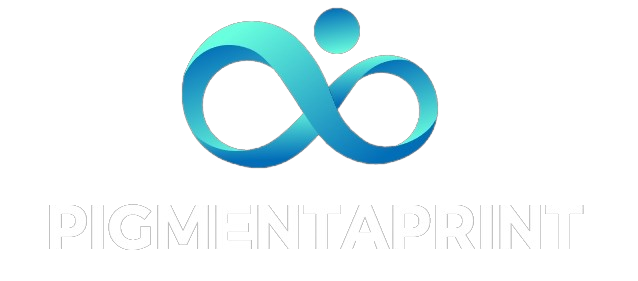When you think of purchasing a home, many complicated processes come to mind – and one of the trickiest to navigate is the world of mortgage loans. Navigating the various options can be overwhelming, as there are many types of loans out there to choose from. To make things a little easier, this article is meant to provide an in-depth look at the different kinds of mortgage loans and how they work. Read on to gain a better understanding of the different types of mortgage loans and make sure you make the best choice for you and your future.
1. Gaining Clarity on Mortgage Loan Options
Mortgages are an essential part of the homebuying process and can be a bit confusing. It’s important to know which loan options are available, the benefits they bring, and which is best-suited for your needs. Here’s a breakdown of the three main types of loans:
Conventional Mortgage
Conventional mortgages are loans backed by the government and come with an array of advantages. They’re usually the ideal choice for those with good credit, large down payments, and lower interest rates. They’re more flexible, too, as they can cover up to 80-90% of the purchase price.
FHA Loan
FHA loans are an excellent option for first-time homebuyers or those with lower-than-average credit scores. They require a smaller down payment and have lower interest rates compared to conventional loans. Plus, FHA loans are often more accessible to those that may not qualify for a conventional mortgage.
VA Loan
VA loans are a great choice for veterans and active duty military personnel. These loans come with no down payment requirements and low interest rates, so they can be an ideal fit. Plus, any fees associated with the loan can be paid for by the VA themselves. Plus, they come with unique advantages such as more lenient credit and income requirements.
When it comes to mortgages, it’s important to be informed about available loan options. Having a look at the various loan possibilities will help you determine which one is right for you and your unique situation. Whether it’s a conventional, FHA, or VA loan, you’ll be well-equipped to decide which loan is best for you.
2. Breaking Down the Four Main Types of Mortgage Loans
Mortgages are a major part of home ownership and there are a variety of loan types available. From 30-year fixed-rate mortgages to interest-only options, each mortgage loan has its own advantages and disadvantages. Here’s a breakdown of the four main types of mortgage loans.
1. Fixed-Rate Mortgages
A fixed-rate mortgage is the most popular type of loan, as it has a fixed interest rate for the life of the loan. This makes budgeting easier for homeowners, because their monthly mortgage payments remain the same. Fixed-rate mortgages typically come in 15 or 30-year terms, but some lenders will offer shorter or longer loan terms.
2. Adjustable-Rate Mortgages
Also known as an ARM or variable rate mortgage, adjustable-rate mortgages have an initial fixed interest rate that remains the same for a certain period of time. After the introductory period ends, the loan’s interest rate adjusts periodically – usually annually – based on market conditions. ARMs usually offer lower monthly payments than fixed-rate mortgages, but the interest rate may increase or decrease over time which could significantly affect your monthly payments.
3. Jumbo Mortgages
A jumbo mortgage is a loan that goes beyond the conforming loan limits set by government-sponsored enterprises Freddie Mac and Fannie Mae. Borrowers generally take out jumbo mortgages when buying high-cost properties or refinancing existing loans with large loan amounts. Although jumbo mortgages usually carry slightly higher interest rates than conforming loans, they may offer more flexible mortgage terms compared to conforming loans.
4. FHA Mortgages
FHA (Federal Housing Administration) loans are insured by the U.S. government and are designed to increase home ownership. These loans allow borrowers with lower credit scores and income to qualify for a home loan with a lower down payment. These loans also provide more lenient approval standards than conventional loans and may be attractive to first-time home buyers and those with limited savings. Borrowers with a minimum credit score of 580 can qualify for an FHA loan with as little as 3.5% down payment.
3. Weighing Your Options Before Taking Out a Mortgage Loan
When you’re ready to take on a mortgage loan, it’s important to weigh your different options. From loan rates and terms to the type of loan that best suits your finances, there’s a lot to consider. Here are a few tips to help you get started.
- Check your credit score: Knowing your credit score is one of the most important steps to take before applying for a mortgage loan. This will give you insight into the type of loan you can qualify for. It also helps you assess your eligibility for some of the best deals on the market.
- Shop around: Comparing rates and terms between multiple lenders can help you secure a better deal for your loan. When doing your research, make sure to include both traditional and online-only lenders. Different companies can offer different benefits, such as higher interest rates or more generous repayment terms. Doing your due diligence can help you choose the best loan for your needs.
- Think about the type of loan you want: Fixed-rate and adjustable-rate loans come with varying terms. Fixed-rate loans come with consistent payments throughout the life of the loan, whereas adjustable-rate loans offer an initial discounted rate that can increase over time. If you’re expecting to own your home long-term, you may want to opt for a fixed-rate loan.
- Make sure you can afford the loan: Calculate your income against your current debt to ensure you can make mortgage payments. Also, consider your financial goals and plans for the house. Many loans have prepayment penalties, so you need to balance the cost of the loan against the cost of making additional payments to pay it off early.
By crunching the numbers, comparing rates, and weighing your options, you’ll be in the best position to take out a mortgage loan that serves your needs. Researching all your options can earn you the most bang for your buck.
For more information, consult a financial expert to help you make the best decision for your mortgage loan.
4. Seeking Professional Advice to Choose the Right Mortgage Loan
Chances are that you need help when it comes to selecting the right mortgage loan for your needs and situation. After all, you don’t want to go through the hassle of choosing the wrong mortgage loan. Fortunately, there are professionals who can help you make an informed decision. Here are some ways to find and hire a mortgage loan expert:
- Get Referrals from Friends and Family – Get referrals from people you know and trust. Ask if they have any experience with mortgage loan professionals. If someone has already gone through the process of securing a loan, they’ll be able to provide you with valuable tips and insights.
- Search Online – Do an online search for mortgage loan professionals in your area. Look for reviews and ratings to get an idea of the person’s experience and feedback. When you’ve compiled a list of professionals, narrow it down to your preferred candidates.
- Request a Consultation – Before committing to a mortgage loan professional, request a consultation meeting. Ask them about their experience, credentials, and fees. Consider asking for quotes so that you can compare and make an informed decision.
It’s also important to read up on what type of mortgage loan suits your needs before seeking advice. Research the various loan term lengths, interest rates, and payment terms. Understand the ins and outs of choosing a mortgage loan to be better prepared for the consultation with your potential loan professional.
Don’t rush the process of finding the right mortgage loan expert for you. Take your time to explore and consider all the options available to you. When you do find the right loan professional to guide you through the mortgage loan process, ensure that you have adequate protections for your rights and interests.
Whether you’re a first-time homebuyer or just looking to refinance, understanding the different types of mortgage loans available can help you make an informed decision and find the right loan for your unique needs. So, dive in and start research different loan options today! You’ll be one step closer to the perfect mortgage for your finances.



